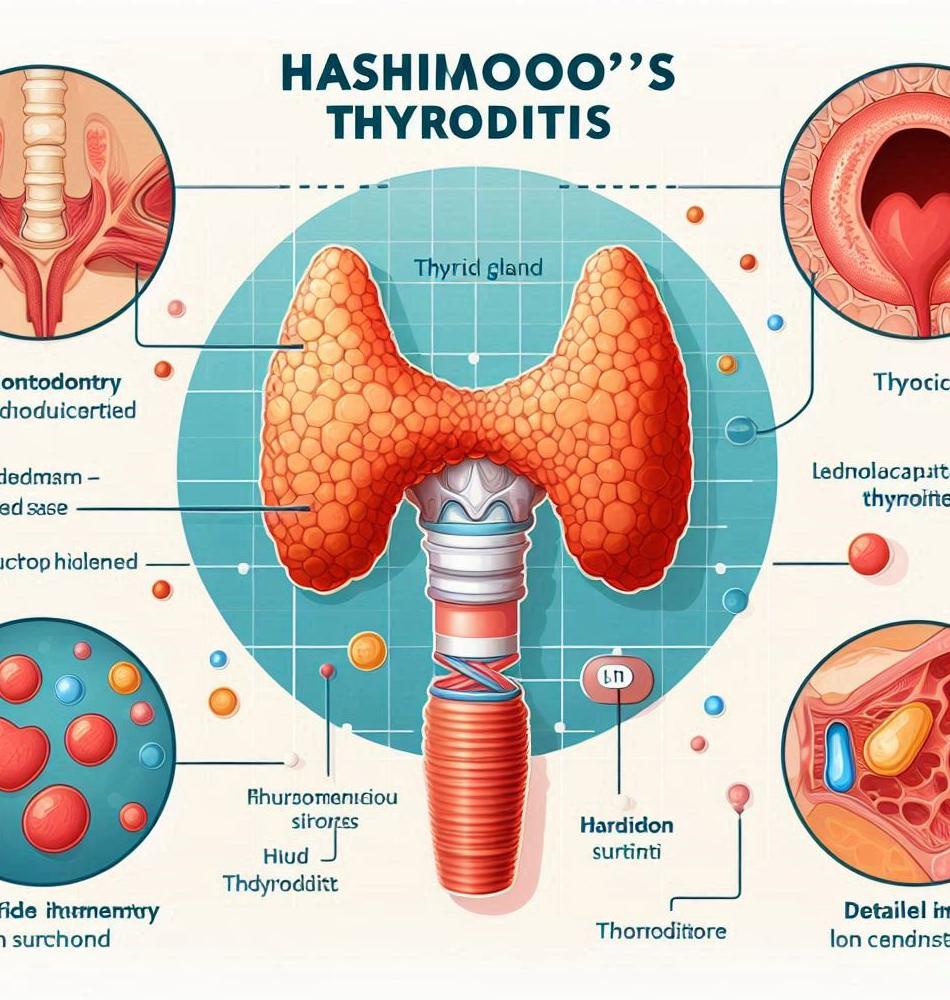Understanding the Differences Between Hashimoto's and Hypothyroidism 🌟
In a world abounding with medical terminology, the distinctions between different conditions can often become convoluted. Among these are Hashimoto's thyroiditis and hypothyroidism, two terms often thrown around in conversations about thyroid health. Understanding whether Hashimoto's is the same as hypothyroidism requires breaking down their specific characteristics and implications. Let's dive deep into these conditions to uncover their differences and similarities.
What is Hypothyroidism? 📉
Hypothyroidism is a condition resulting from an underactive thyroid gland, meaning it fails to produce sufficient amounts of thyroid hormones. These hormones—the key players in regulating metabolism, heart rate, and energy levels—are critical for maintaining a balanced bodily function.
Symptoms of Hypothyroidism
People experiencing hypothyroidism may encounter a myriad of symptoms, which can sometimes be mistaken for other disorders. Common signs include:
- Fatigue and sluggishness- Weight gain- Cold intolerance- Dry skin and hair- Depression and mood swings- Constipation- Muscle weaknessCauses of Hypothyroidism
Numerous factors can lead to hypothyroidism, including:
- Autoimmune disease- Certain medications- Genetic predisposition- Radiation therapy- Thyroid surgeryWhat is Hashimoto's Disease? 🌿
In contrast, Hashimoto's thyroiditis is an autoimmune disorder wherein the immune system mistakenly attacks the thyroid gland. This havoc wreaked by the immune system typically results in inflammation and ultimately leads to hypothyroidism.
Symptoms of Hashimoto's Disease
Many symptoms of Hashimoto's overlap with those of hypothyroidism, creating further confusion. Individuals with Hashimoto's may experience:
- Fatigue- Weight gain- Depression- Hair loss- Goiter (swelling of the thyroid gland)- Joint and muscle painCauses and Risk Factors of Hashimoto's Disease
While the exact cause of Hashimoto's remains elusive, several factors may increase the likelihood of developing this condition:
- Genetic predisposition- Female gender (Hashimoto's is more prevalent in women)- Age (usually detected in middle age)- Other autoimmune disorders (like lupus or rheumatoid arthritis)How Are They Related? 🔗
So, how do these two conditions interconnect? At their core, Hashimoto's disease is a prominent cause of hypothyroidism. The autoimmune attack on the thyroid leads to decreased hormone production, manifesting as the symptoms of hypothyroidism.
An Insight on Diagnosis
Diagnosing these conditions requires specific tests, which include:
- Blood tests measuring levels of thyroid hormones (TSH, T3, T4)- Tests for thyroid antibodies (to check for Hashimoto's)Distinguishing the Two
To make precise distinctions:
- A patient entirely diagnosed with hypothyroidism may not necessarily have Hashimoto's.- Conversely, someone with Hashimoto's often exhibits hypothyroid symptoms due to the resultant hormone deficiency.Treatment Options Available ⚕️
Managing these conditions might seem daunting, but various treatment strategies can mitigate symptoms and restore thyroid function.
Hypothyroidism Treatment
The primary treatment for hypothyroidism involves hormone replacement therapy, commonly achieved through synthetic thyroid hormones such as levothyroxine. This medication helps normalize hormone levels and restore metabolic function.
Hashimoto's Disease Management
For Hashimoto's patients, treatment focuses on addressing symptoms and managing the autoimmune response:
- Hormone replacement therapy for low thyroid hormone levels, similar to hypothyroidism treatment- Regular monitoring of thyroid hormone levels- Dietary considerations (gluten-free diets may benefit some patients)Effective Lifestyle Changes
Incorporating healthy lifestyle changes can augment treatment success for both conditions:
- Balanced nutrition tailored for thyroid health- Regular exercise- Stress management techniques like yoga and meditationFrequently Asked Questions 💡
- Is Hashimoto's disease curable?- Can hypothyroidism lead to severe complications?- Do all autoimmune diseases cause hypothyroidism?- Are there any natural remedies for managing thyroid health?- How often should individuals with these conditions be monitored?Conclusion 🌈
In conclusion, while Hashimoto's disease and hypothyroidism are often related, they are not inherently the same. Understanding the differences can empower individuals to seek appropriate treatment and manage their health effectively. By recognizing symptoms, pursuing a correct diagnosis, and implementing effective treatment strategies, those affected can lead fulfilling lives despite these conditions.
.png)






